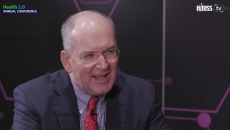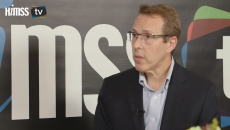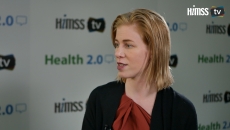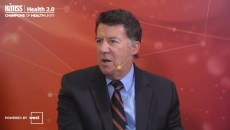FHIR
Thanks to the ability to have an agreed data structure and content through FHIR, data being made available at the point of care and in a timely fashion is becoming a reality, says Dr. Vincent McCauley, CMO and CMIO at Telstra Health.
Grahame Grieve, FHIR product director for HL7 International, says not only is FHIR a standard for exchanging healthcare data, but it is also a community of people who aims to create a "public treasure" that we all own.
The 21st Century Cures Act is providing opportunities for health tech startups, says Dr. Donald Rucker, chief of the Office of the National Coordinator for Healthcare Information Technology.
Mark Kramer, chief engineer for MITRE's Health Technology Center, says patients need to have control of their data that is currently shared provider to provider to promote their own health.
The conversation isn't just about apps anymore — it's about robust, patient-centered platforms that are changing the calculus for care delivery in a consumer-centered age.
Medal's collaboration platform for common workflows translates a wide variety of formats into FHIR data to be exported downstream, says co-founder and CEO Lonnie Rae Kurlander.
The new effort will be focused on standardizing medical codes for social determinants of health.
CARIN, a nonprofit dedicated to consumer-directed exchange of health information, has unveiled its Blue Button HL7 FHIR API model and draft guidance implementation guides.
The FHIR community has grown exponentially across the globe because of its ability to scale, while resonating across communities of interest such as patient access and genomics, says Charles Jaffe, CEO of HL7 International.
Kari Hedges, SVP at Blue Cross Blue Shield Association, and Laurent Rotival, SVP at Cambia Health Solutions, say three things are needed: The industry must put patients at the center, use standards like HL7 FHIR and get the entire ecosystem working together.






